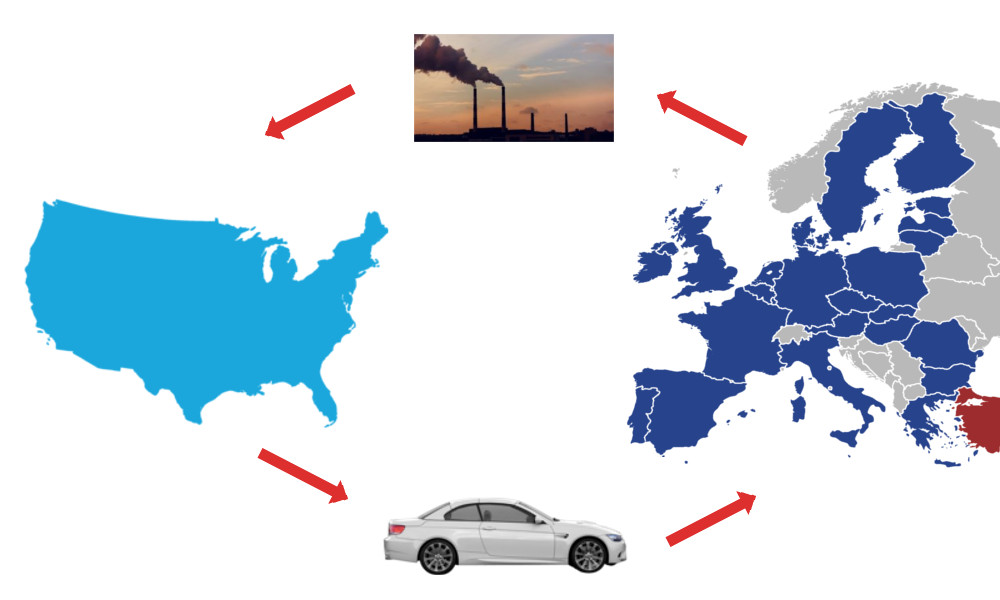For climate policy, the major problem is the escape of CO2 emissions from countries that have a restrictive policy of reducing emissions to countries that do not. The energy-intensive industry is moving from one country to another so that emissions do not fall, and ready goods are imported into the country of "escape". This has many negative consequences. Firstly, global CO2 emissions are not falling, and they can even increase because outdated energy-consuming technologies are used in the "CO2 shelter" country. Secondly, the country of escape loses jobs and tax revenues, which causes social protests and reduces support for climate-saving actions. This phenomenon is known as Carbon Leakage and poses a serious challenge to climate policy.  For obvious reasons, international trade with countries like the US cannot be banned, but luckily, there is another solution. According to the rules of the World Trade Organization, the imposition of a carbon tax may be accompanied by a carbon duty that prevents a reduction in the competitiveness of domestic producers. The imposition of a carbon duty on the import of a "CO2 shelter" from a country is also part of the pressure on the country's government to join the efforts to reduce emissions. For my part, I would like to add my own three cents to the coal duty idea. The proceeds from this duty should be entirely allocated to investments in zero-emission energy sources. Similar to CAT, the entity authorized to receive subsidies should be importers who pay this duty at the border.
For obvious reasons, international trade with countries like the US cannot be banned, but luckily, there is another solution. According to the rules of the World Trade Organization, the imposition of a carbon tax may be accompanied by a carbon duty that prevents a reduction in the competitiveness of domestic producers. The imposition of a carbon duty on the import of a "CO2 shelter" from a country is also part of the pressure on the country's government to join the efforts to reduce emissions. For my part, I would like to add my own three cents to the coal duty idea. The proceeds from this duty should be entirely allocated to investments in zero-emission energy sources. Similar to CAT, the entity authorized to receive subsidies should be importers who pay this duty at the border.
The problem of carbon leakage
- Details
- Written by: admin
- Category: Idea CAD EN
- Hits: 62


